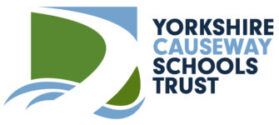Subject Leader
The subject leader for Maths is Mrs Crankshaw.
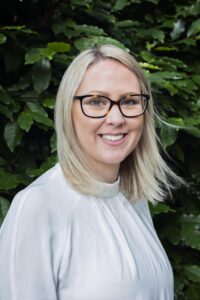
Through our Maths Leader Mrs Crankshaw we have a close and established relationship with the Yorkshire and Ridings Maths Hub.
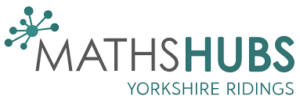
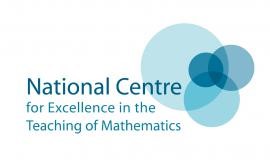
Mrs Crankshaw is a trained Mathematics Mastery Specialist Teacher and an accredited Professional Development Lead Teacher. Within her role at the Hub, she coordinates and leads a Work Group supporting mathematics leaders from across the region to implement and sustain Teaching for Mastery within their schools. She also is an ITT Mathematics trainer for Red Kite Learning Trust.
The subject leader can be contacted by emailing admin@stpeters.ycway.uk using the subject title FAO of followed by the name of the subject leader. Emails typically receive a reply within 2-3 working days. Please note most of our subject leaders have a full-time teaching commitment.
With oversight and support from our Senior Leadership team subject leaders oversee and monitor the intent, implementation and impact of their subject.
Intent – The ambition and principles of our curriculum for our children. The curriculum content we expect children to learn. What we expect children to know.
Implementation – How the intentions are realised. The sequence and strategies used to ensure children know and remember more.
Impact – How we check and see if children know what we expect them to and how we help them further if needed. How knowledge and skills learnt improved and enriches their lives socially, emotionally, spiritually as well as academically.
Curriculum Development
The Maths curriculum at St. Peter’s really does enable children to SHINE. We have adopted a research-based Teaching for Mastery approach that enables all children to become fluent mathematicians, who are able to reason mathematically and use the mathematics they have learned to solve a range of problems.
At the heart of everything we do, is a belief that all children can achieve and master mathematics. We believe in promoting a sustained and deep understanding by employing a variety of Teaching for Mastery strategies that develop children’s conceptual understanding and procedural fluency in tandem. We place an emphasis on the cumulative mastery of essential knowledge and skills in mathematics by breaking down learning into small steps that enable children to develop deep conceptual knowledge.
Our approach aims to provide all children with full access to the curriculum, enabling them to develop independence, confidence and competence – ‘mastery’ – in mathematics in order to be independent mathematicians, who are well equipped to apply their learning to the wider world.
Subject Rationale
The mathematics curriculum at St. Peter’s enables all children to SHINE. We have adopted a research-based Teaching for Mastery approach that enables all children to become fluent mathematicians, who are able to reason mathematically and use the mathematics they have learned to solve a range of problems. The National Curriculum is delivered using the NCETM’s Curriculum Maps and is supplemented by the delivery of both the NCETM’s KS1 (focus on additive facts and relationships) and KS2 (focus on multiplicative facts and multiplicative thinking) Mastering Number programmes to support children’s factual fluency. The Teaching for Mastery approach describes the elements of classroom practice and school organisation that combine to give pupils the best chances of mastering mathematics. Fluency and security in core knowledge mean pupils acquire a deep, long-term, secure and adaptable understanding of the subject. In order for concepts to be mastered, concepts are taught through small, coherent, manageable steps with plenty of opportunity for challenge through rich and sophisticated problems. Mistakes and misconceptions are seen as an essential part of learning and fostering positive can-do attitudes promote the fact that, ‘We can all do maths!’
The first few years of a child’s life are especially important for mathematics development. Research shows that early mathematical knowledge predicts later reading ability and general education and social progress. Building firm mathematical foundations begins in Early Years through high quality provision that is engaging and appropriate for their age. The six key areas of mathematical learning (cardinality and counting, comparison, composition, pattern, shape and space and measures) collectively provide a platform for everything children will encounter as they progress through their maths learning into KS1 and beyond. The EYFS Mastering Number programme also meets all requirements as stated in Development Matters.
By the end of KS2, children develop the knowledge and skills to be able to solve a wider range of problems, including those with increasingly complex properties of numbers and arithmetic that demand efficient written and mental methods for calculation. Through repeated intelligent practice and well-crafted varied fluency activities, children will have embedded core number facts, freeing up capacity in their working memories to tackle new, more complex problems and concepts. They will be able to classify shapes with complex geometrical properties and be fluent in working with fractions, decimals and percentages. The use of core representations and structures to support pupils to reason mathematically and understand key mathematical structures is embedding throughout the school. This depth of understanding supports and prepares children well as they move on to KS3.
To read our full mathematics rationale document, outlining in more detail the intent, implementation and impact for the subject, please click on the link below.
Subject Sequence and Knowledge Progression
The documents below outline in more detail the sequence children will follow in relation to Maths and the progression of knowledge.
Additional Guides & Advice
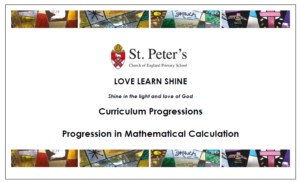
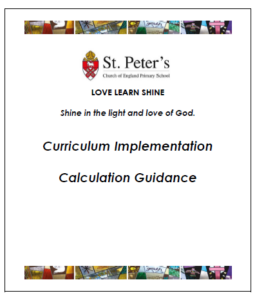
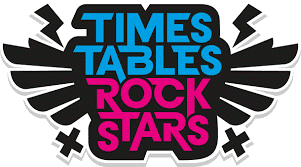
All children in Key Stage 2 are encouraged to use Times Table Rockstars on a regular basis to support them with learning their times tables and building fluency. Your child’s teacher will provide them with an individual log in. TT Rockstars is a carefully sequenced programme of daily times tables practice. The programme successfully boosts times table recall and is really motivational for the children. Please read the Parent Support Guide (below) which explains the different game modes, gives advice and support for children with different needs and explains how to trouble shoot.
Transition into Key Stage Two Activities

We are pleased to share these helpful maths transition packs to help children prepare for moving into the four Key Stage Two Year groups (year 3, 4, 5 & 6). They are full of fun games and activities that can be done throughout the summer break to help your child prepare and be ready for their new year group.
Impact Examples
We are pleased to share some examples of how knowledge and skills learnt have improved and enriched our children’s lives socially, emotionally, spiritually as well as academically.
Children at St. Peter’s love maths! They are happy learners and talk enthusiastically about their learning and are eager to further their progress in maths. Children in year 4, who have this year begun the NCETM Mastering Number programme, talk about how much their confidence has grown and that it is easy to learn our times tables now as we practise in school every day. ‘Now I know there are only 36 core facts to learn and not 144, learning my times tables has become easy.’ Year 4 child from Owl’s class.
The image below shows the 36 core facts and an example of the new facts that are introduced and learnt to automaticity each week.
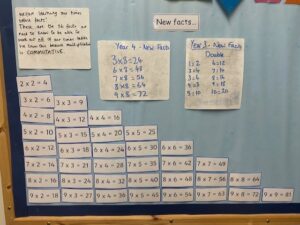
Maths leaders from across the region came to visit our school in October and observed a maths lesson in year 2 alongside Mrs Crankshaw so that we could exemplify the impact of the Mastering Number programme in KS1 on our children’s fluency in additive facts. The teachers were very impressed with the children’s ability to use and apply precise mathematical vocabulary to articulate their thinking. All children were fluent in their additive facts to 6 and this was clearly demonstrated with their recall and understanding of commutativity.
In years 5 and 6, the children thrive during our low-stakes quizzes to check understanding. ‘I love trying to improve on my score each week. I also feel prepared for SATs because as a class we work on the areas we find more challenging every morning during our Fluent in 5.’ Year 6 child from Ravens class.
